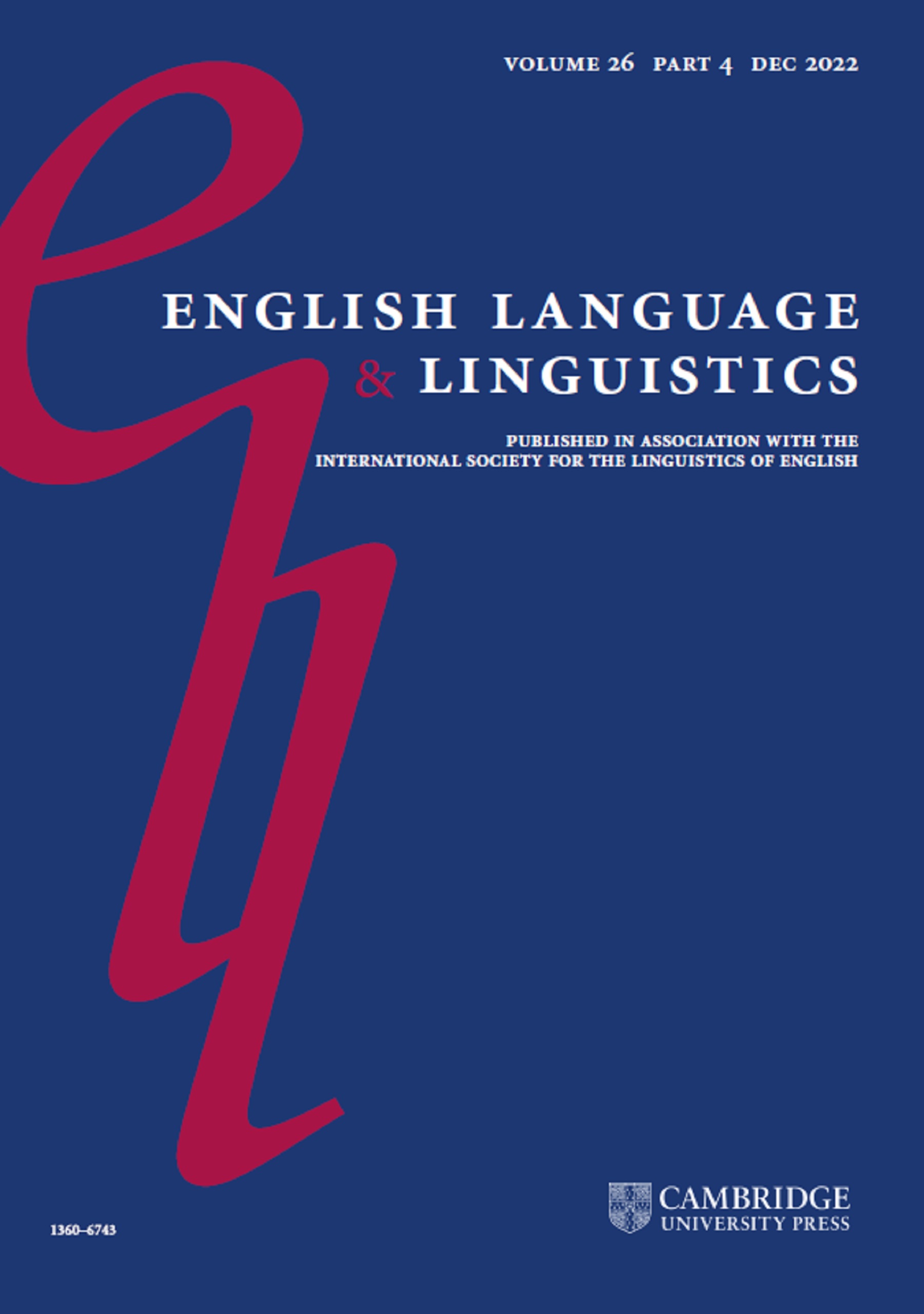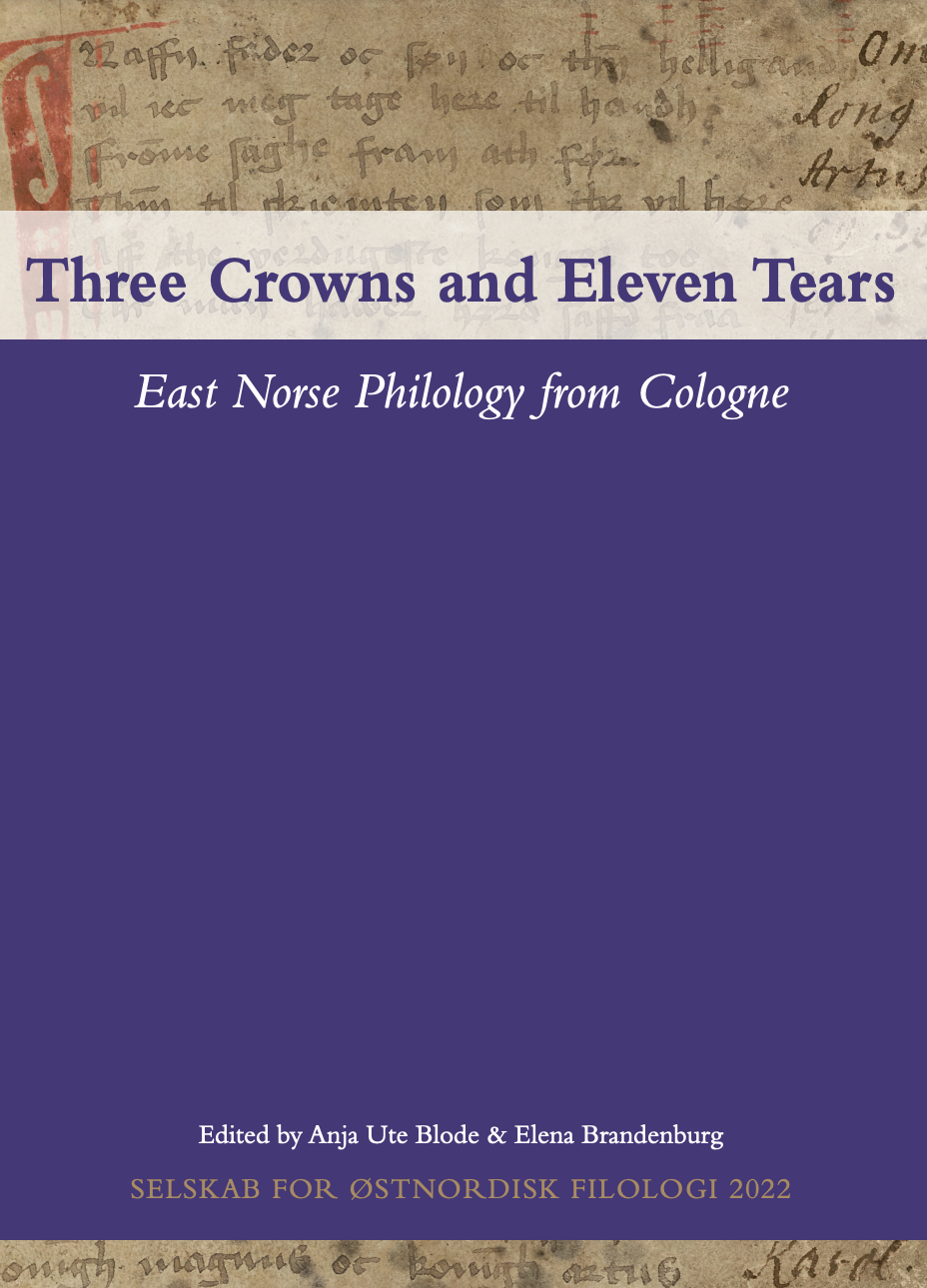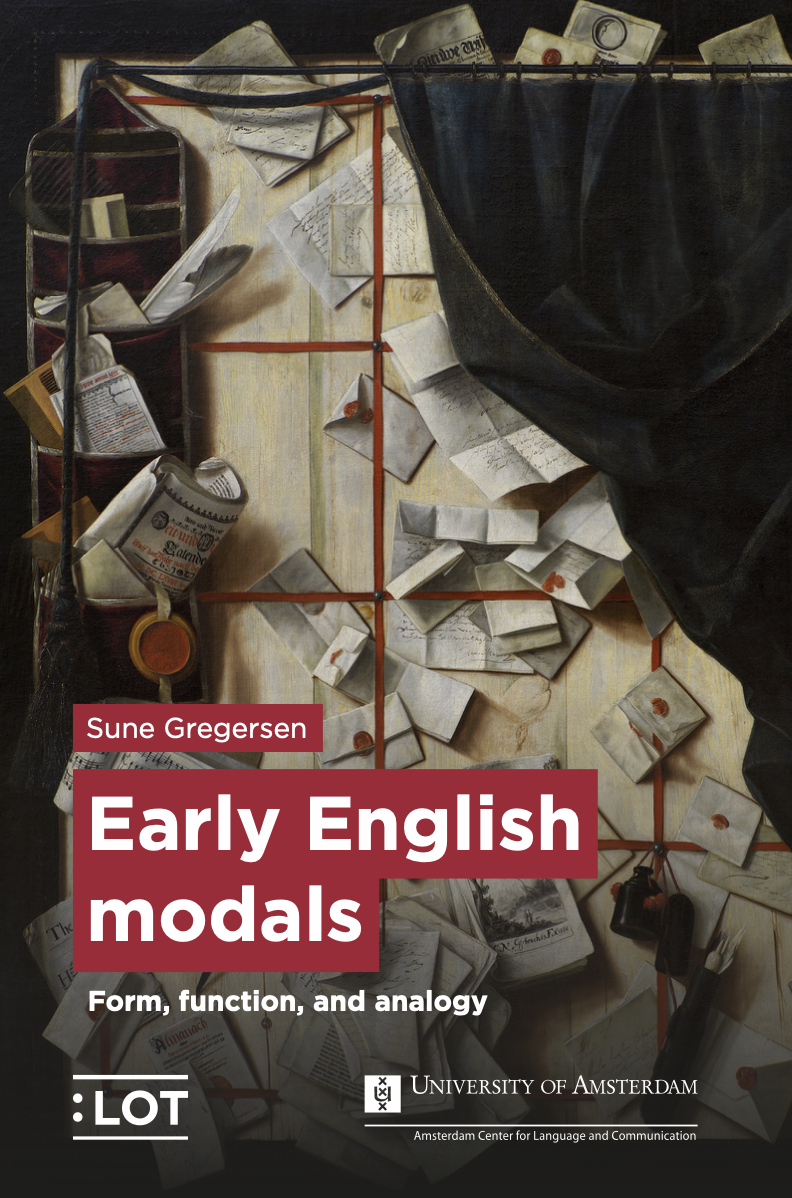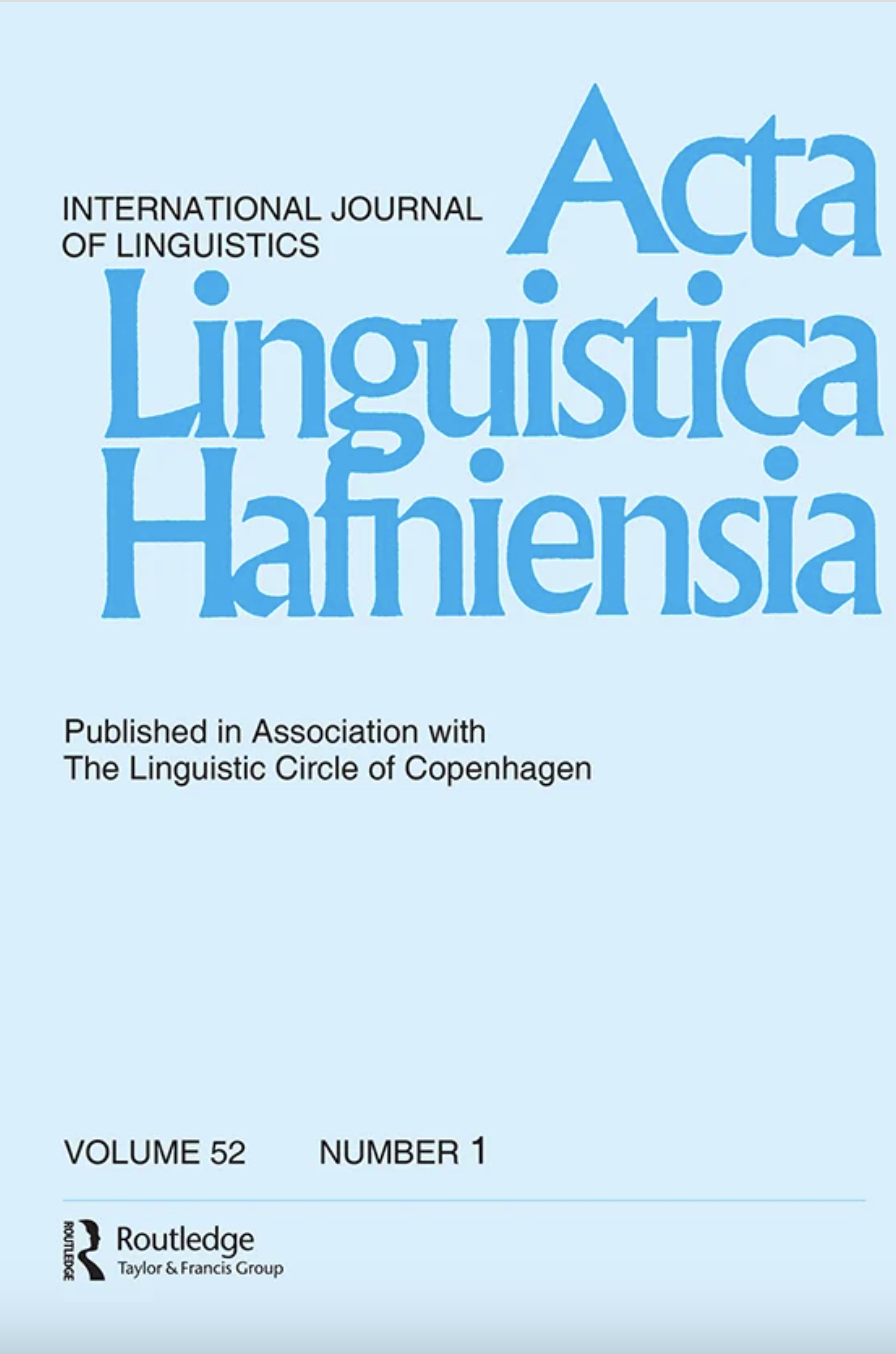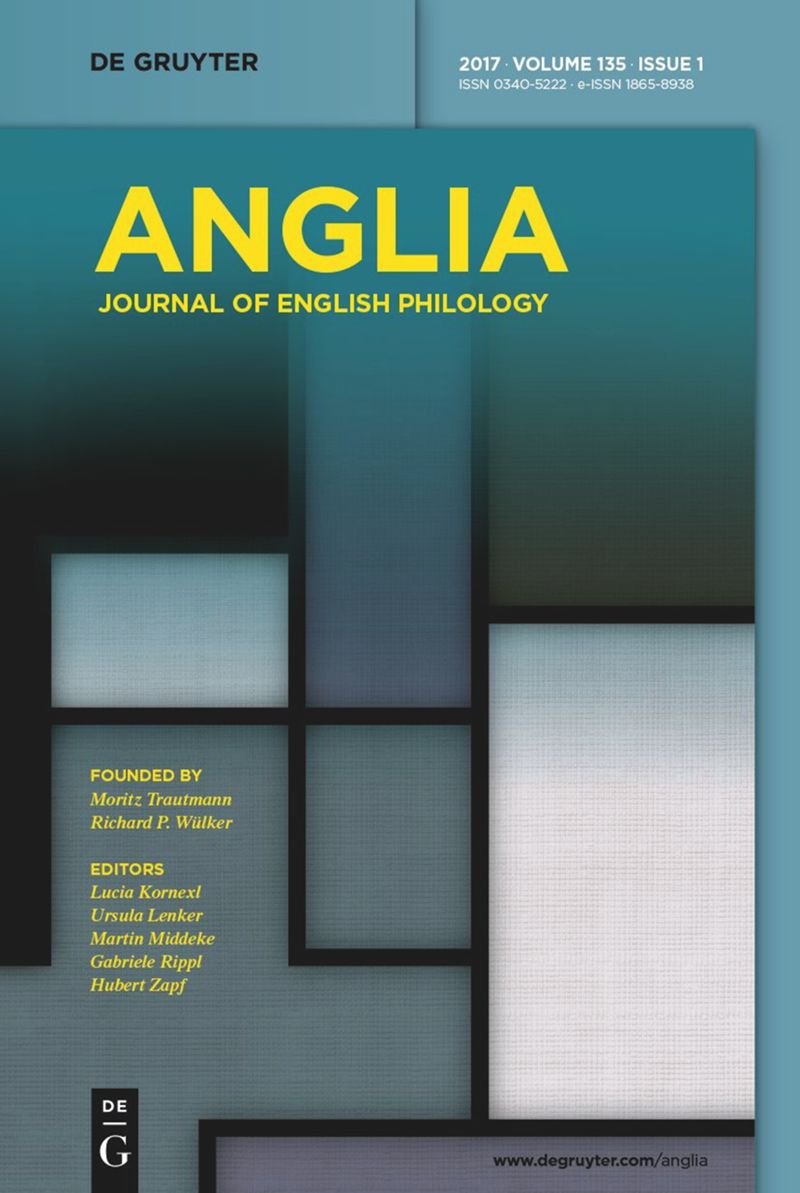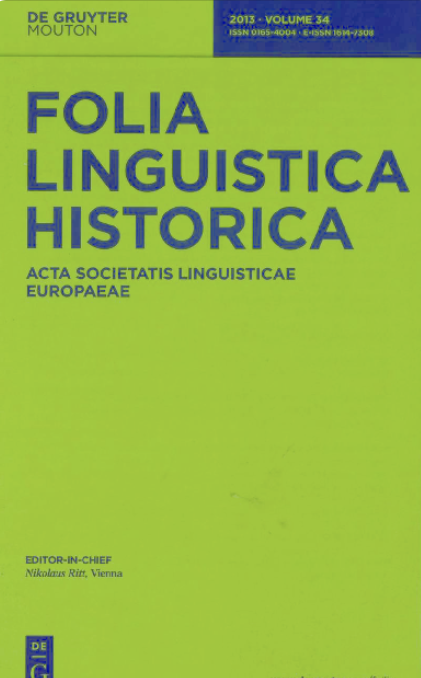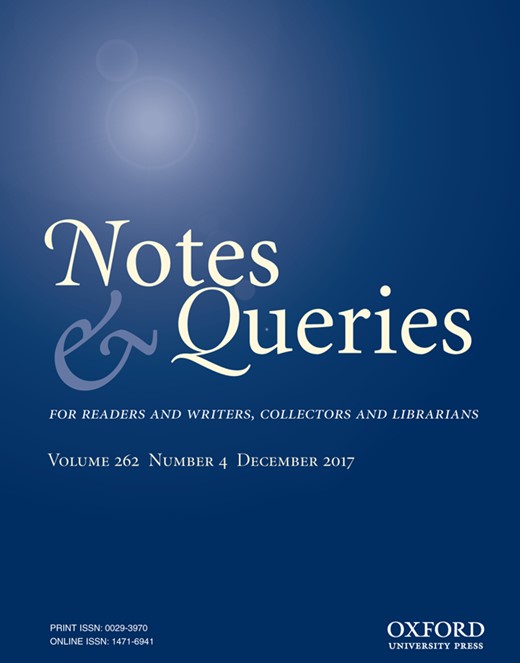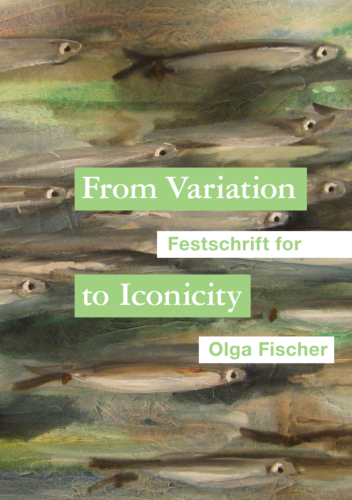Early English modals
PhD dissertation on the historical development of the English modals
In my PhD dissertation (University of Amsterdam, 2020), supervised by Olga Fischer, I investigated a number of semantic and grammatical changes in the history of the English modal verbs, most of them in the Middle English period (1100–1500 CE). Some of these changes have received only little attention in the literature, but are highly relevant for our understanding of the history of English as well as the diachronic pathways of modal expressions.
In addition to corpus data from Old, Middle and Early Modern English, I used material from other Germanic languages to look for similarities and differences between historically related modal systems. Some of the main findings of my PhD work were:
-
The (apparent) morphological regularisation of some Middle English modals, most importantly shall, was most likely due to analogical influence from the ‘anomalous’ verb will. The innovative forms show an areal distribution, being more prevalent in the dialect area where shall and will had the same stem vowel. This investigation appeared as an article in English Language & Linguistics.
-
There is no evidence of either grammaticalisation or degrammaticalisation of dare from Old English to the present day. Rather, dare has been characterised by functional stability and a number of formal changes which were all analogical in nature. The syntactic and semantic characteristics of dare were explored in this article, while a proposal about the transitive use of dare (as in I dare you!) was made in a short paper in the philological journal Notes & Queries.
-
The epistemic use of may did not develop out of the permission sense (i.e. deontic modality), as has been repeatedly claimed in the literature. Rather, the source of the epistemic meaning was ‘wide-scope’ possibility contexts. Close parallels to this development have been observed in Dutch and German, possibly pointing to an areal tendency in Western Europe (cf. also this chapter in the World Atlas of Language Structures).
-
The change of must from a possibility to a necessity modal happened in so-called participant-imposed dynamic contexts, where an open possibility was reinterpreted as the only possible course of action. This Early Middle English development was found to have an apparent parallel in Late Middle Danish, where the modal mughe also changed from possibility to necessity (Modern Danish måtte), as shown in this paper. A less technical overview of the history of måtte appeared in the Danish journal Mål & Mæle.
In addition, with my colleague Wim Caers (University of Antwerp), I carried out a small investigation of what we termed “independent” modals (e.g. West Frisian dat kin ‘that is possible’). We showed that this construction is found across several dialects of Dutch, Low German, and Frisian, i.e. the “coastal” West Germanic languages, and suggested that its distribution is likely due to historical contact between these languages.
During my time as a PhD candidate I also published a number of book reviews and review articles on topics relating to the history of English, modality, and historical linguistics more generally.
My dissertation can be downloaded from the University of Amsterdam or the Dutch graduate school LOT. Feel free to send me an email if you would like a paper copy.
Presentations
| Title | Event | Date | Downloads |
|---|---|---|---|
| Historical variation in verbal constructions: Two case studies from West Germanic | ACLC Seminar, University of Amsterdam | 15/11/19 | slides handout |
| Wat mutt, dat mutt: ‘Independent’ modals in West Germanic vernaculars (with Wim Caers) | TABU-dag, University of Groningen | 20/06/19 | handout |
| How ‘can’ becomes ‘have to’: Middle Danish mughe and its West Germanic parallels | SØF 4, University of Cologne | 12/06/19 | handout |
| How ‘can’ becomes ‘have to’: Middle Danish mughe and its West Germanic parallels | Oudgermanistendag, University of Amsterdam | 07/06/19 | handout |
| Wat mutt, dat mutt: ‘Independent’ modals in West Germanic vernaculars | Language Description and Typology research group, University of Amsterdam | 08/03/19 | |
| The meaning(s) of must in Middle English | ICOME XI, University of Florence | 07/02/19 | handout |
| The meaning(s) of must in Middle English | SLE 51, University of Tallinn | 01/09/18 | handout |
| Directionals and (de)grammaticalization in the Dutch modals (with Wim Caers, Olga Fischer, and Jan Nuyts) | SLE 51, University of Tallinn | 29/08/18 | |
| The development of must from Old to Middle English – a progress report | Language Description and Typology research group, University of Amsterdam | 25/05/18 | handout |
| Dare and the ‘degrammaticalization’ debate – reappraising the evidence | SLE 50, University of Zurich | 12/09/17 | slides |
| Middle English impersonals in cross-linguistic perspective | English Research Seminar, University of Bamberg | 29/06/17 | slides |
| Germanic ‘courage’ modals: Form, function, and history | Linguistische Werkstatt, University of Bamberg | 28/06/17 | slides |
| Middle English impersonals in cross-linguistic perspective | Grammar and Cognition research group, University of Amsterdam | 23/06/17 | |
| Impersonal modals in Middle English | SHES 15, University of Amsterdam | 06/05/17 | slides manuscript |
| Impersonal modals in Middle English | TWIST 11, University of Leiden | 21/04/17 | slides |
| Dare and the ‘degrammaticalization’ debate – reappraising the evidence | Grammatical Variation and Change in English, KU Leuven | 04/04/17 | slides |
| To dare larks: Analogy and interference in the English modals | SOEMEHL 38, University of Leiden | 16/12/16 | slides |
| To dare larks: Analogy and interference in the English modals | NAP-dag, University of Amsterdam | 25/11/16 | slides |
